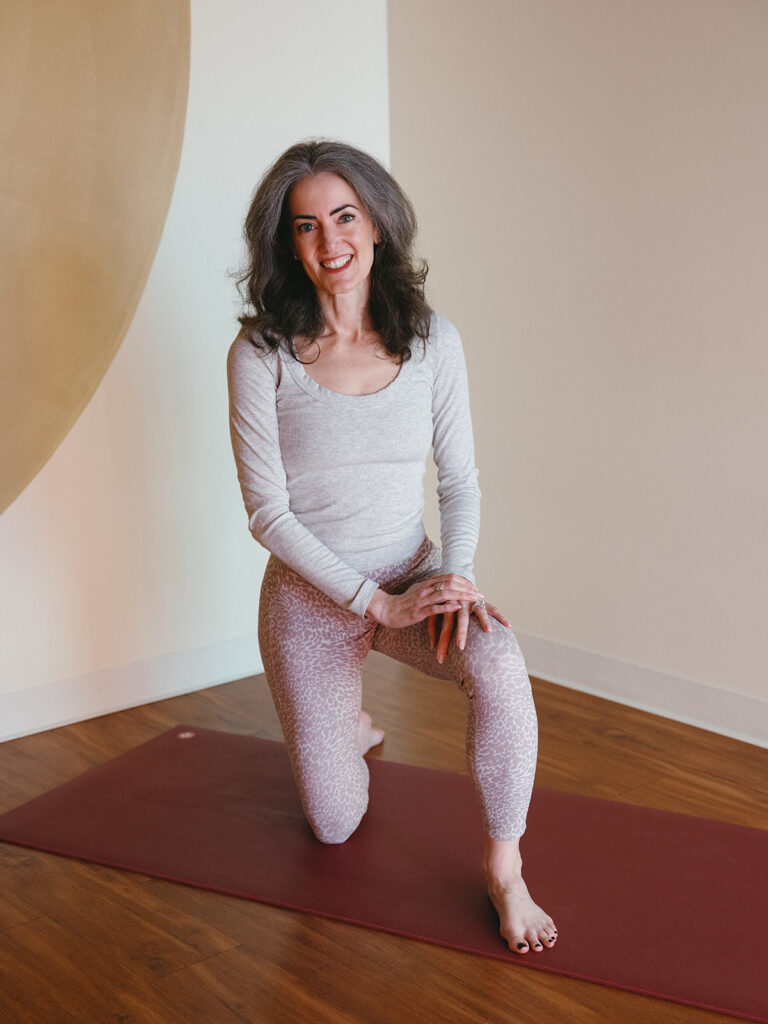Do you feel your nerves bubbling up before teaching a yoga class? You’re not alone. I do, too!
Even seasoned yoga teachers feel the jitters. But instead of seeing them as a hindrance, you can learn to use those feelings to your advantage. Let’s explore how to transform nerves into confidence, tackle imposter syndrome, and show up fully for your students. (This is all covered in S1E11 of Yoga Teacher Confidential, too!)
why do we get nervous before class?
Nerves are often seen as a negative force, but they can actually be a sign that you care. I always tell myself: “The day you stop feeling nervous is the day you should stop teaching.” Nervous energy shows that you’re invested in offering a meaningful experience to your students. And having some “arousal”—that is, some excited energy—is actually the key to peak performance.
understanding imposter syndrome
Imposter syndrome is a common challenge for yoga teachers, especially given the weight we attach to the ancient, spiritual roots of yoga and the responsibility we feel to honor its history. It’s normal to question your role as a guide, but dwelling on these doubts can keep you from serving the students who need your expertise.
how to overcome pre-class jitters
1. redefine your relationship to nerves
Recognize that nerves mean you care about your students and their journey. Shift your mindset from “I’m not ready” to “I’m excited to share something meaningful.”
2. know your scope of practice
Anxiety often stems from trying to be everything for everyone. Stay in your lane as a yoga teacher: offer guidance, hold space, and trust your students to make their own choices.
3. prepare thoughtfully but not excessively
Arriving at the studio with enough time to plan and center yourself can alleviate jitters. However, too much idle time can increase your anxiety.
4. ground yourself
A quick self-practice or breathwork session can help you feel more connected before stepping into the teaching seat.
a practical tip for high-pressure moments
Whether you’re teaching at a studio or in high-profile situations, focus on small tasks to manage nerves. Studio owners, for example, will deeply appreciate a quick blanket-folding session while you’re waiting for students to arrive. And routine can help you feel calm and controlled.
And remember: your students just want to feel better. Trust the practice.
Nerves and imposter syndrome don’t have to hold you back. When you embrace these feelings and shift your mindset, you can connect more deeply with your students and thrive as a teacher.
Listen to Yoga Teacher Confidential S1E11 for more!
Ready to reduce anxiety before your next class? Download my free back-pocket lesson plan to prepare with confidence. You’ll have one less thing to worry about!


